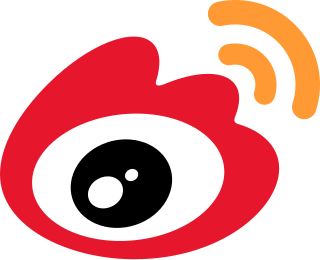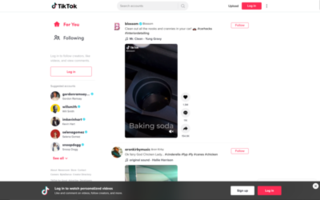Related Research Articles

Internet censorship in India is done by both central and state governments. DNS filtering and educating service users in suggested usages is an active strategy and government policy to regulate and block access to Internet content on a large scale. Also measures for removing content at the request of content creators through court orders have become more common in recent years. Initiating a mass surveillance government project like Golden Shield Project is also an alternative discussed over the years by government bodies.

The Information Technology Act, 2000 is an Act of the Indian Parliament notified on 17 October 2000. It is the primary law in India dealing with cybercrime and electronic commerce.

UC Browser is a web browser developed by mobile internet company UCWeb, a subsidiary of the Alibaba Group. It was the most popular mobile browser in India and Indonesia, and the second most popular one in China as of 2017. Its world-wide browser share as of May 2021 is 1.34% according to StatCounter.
Censorship in Kashmir involves the censorship of both news media and social media as part of the Kashmir conflict.

Sina Weibo (新浪微博) is a Chinese microblogging (weibo) website. Launched by Sina Corporation on 14 August 2009, it is one of the biggest social media platforms in China, with over 445 million monthly active users as of Q3 2018. It's impossible for any foreigner without a Chinese ID and a Chinese phone number to register on the platform. The platform has been a huge financial success, with surging stocks, lucrative advertising sales and high revenue and total earnings per quarter. At the start of 2018, it surpassed the US$30 billion market valuation mark for the first time.
Censorship of Twitter refers to Internet censorship by governments that block access to Twitter, or censorship by Twitter itself. Twitter censorship also includes governmental notice and take down requests to Twitter, which Twitter enforces in accordance with its Terms of Service when a government or authority submits a valid removal request to Twitter indicating that specific content is illegal in their jurisdiction.
WeChat is a Chinese multi-purpose instant messaging, social media andmobile payment app developed by Tencent. First released in 2011, it became the world's largest standalone mobile app in 2018, with over 1 billion monthly active users. WeChat has been described as China's "app for everything" and a "super app" because of its wide range of functions. WeChat provides text messaging, hold-to-talk voice messaging, broadcast (one-to-many) messaging, video conferencing, video games, sharing of photographs and videos and location sharing.
UCWeb Inc. is a Chinese mobile Internet company that offers products and services including mobile browser, UC News, and search. Its flagship product, UC Browser, topped the Chinese, Indonesian and Indian markets in 2013.

There have been campaigns advocating for a boycott of products made in China. Commonly cited reasons for boycotting China include the alleged low quality of products, human rights issues, territorial conflicts involving China, support for separatist movements within China, and objection to more specific matters relating to China, including the government's mismanagement of the COVID-19 pandemic.
SHAREit is a peer to peer file sharing, content streaming and gaming platform that supports online and offline sharing of files and contents. It allows users access to short format videos and a wide range of games making it a multimedia entertainment app for users. It works on various smartphone platforms allowing users to share files between devices directly. SHAREit was developed as part of Lenovo at its initial stage but was later spun off and operated under a separate Singapore based technology company Smart Media4U Technology Pte. Ltd.
QQ Music is one of the three Chinese freemium music streaming services owned by Tencent Music, a joint venture between Tencent and Spotify. As of 2018, the service is set to reach over 700 million users with an estimated 120 million subscribers.

JioTV is an Indian streaming television service, owned by Jio Platforms, a subsidiary of Reliance Industries Limited. JioTV is a live TV channel streaming platform. JioTV has over 800 channels.

Roposo is an Indian video-sharing social media service, owned by Glance, a subsidiary of InMobi. Roposo provides a space where users can share posts related to different topics like food, comedy, music, poetry, fashion and travel. It is a platform where people express visually with homemade videos and photos. The app offers a TV-like browsing experience with user-generated content on its channels. Users can also use editing tools on the platform and upload their content.

TikTok, known in China as Douyin, is a video-focused social networking service owned by Chinese company ByteDance Ltd. It hosts a variety of short-form user videos, from genres like pranks, stunts, tricks, jokes, dance, and entertainment with durations from 15 seconds to three minutes. TikTok is an international version of Douyin, which was originally released in the Chinese market in September 2016. TikTok was launched in 2017 for iOS and Android in most markets outside of mainland China; however, it became available worldwide only after merging with another Chinese social media service, Musical.ly, on 2 August 2018.

CM Browser is a web browser developed by Cheetah Mobile. The browser is based on Chromium and supports both the WebKit and Trident browser engines. Jinshan Network claims that CM Browser is the first secure dual-engine browser with a "browser intrusion prevention system".

Likee is a short-video creation and sharing app, available for iOS and Android operating systems. It is owned by Singaporean tech firm BIGO Technology, whose parent company is JOYY Inc., a Chinese firm listed on NASDAQ. The founder of Likee is Jason Hu, entrepreneur from Singapore, who previously worked for JOYY.
Bigo Live is a live streaming platform owned by a Singapore-based BIGO Technology, which was founded in 2014 by David Li and Jason Hu. As of 2019, BIGO Technology is owned by JOYY, a Chinese company listed on the NASDAQ.

Aarogya Setu is an Indian COVID–19 "contact tracing, syndromic mapping and self-assessment" digital service, primarily a mobile app, developed by the National Informatics Centre under the Ministry of Electronics and Information Technology (MeitY). The app reached more than 100 million installs in 40 days. On 26 May, amid growing privacy and security concerns, the source code of the app was made public.

Beginning on 5 May 2020, Chinese and Indian troops engaged in aggressive melee, face-offs, and skirmishes at locations along the Sino-Indian border, including near the disputed Pangong Lake in Ladakh and the Tibet Autonomous Region, and near the border between Sikkim and the Tibet Autonomous Region. Additional clashes also took place at locations in eastern Ladakh along the Line of Actual Control (LAC).
Multiple governmental agencies and private business have imposed or attempted impose bans on the social media service TikTok. Countries like India and the United States have expressed concerns about the app’s ownership by the Chinese company, ByteDance, attempting to ban it from app stores. Countries such as Indonesia and Bangladesh have banned it on the basis of pornography-related concerns, while others like Armenia and Azerbaijan have implemented restrictions to mitigate the spread of information which could lead to conflict.
References
- ↑ "China Link: NewsDog, UC News and others face govt scrutiny". The Economic Times. 2017-12-01. Archived from the original on 2018-08-10. Retrieved 2020-06-26.
- ↑ Ghoshal, Anirban (6 June 2016). "Alibaba-owned UC Browser's News app more about popular curated content". Hindustan Times . HT Media. Archived from the original on 6 June 2016. Retrieved 2 October 2019.
- ↑ Lim, Louisa; Bergin, Julia (2020-06-25). "China is reshaping the global news landscape and weakening the Fourth Estate". The Guardian . ISSN 0261-3077. Archived from the original on 2020-06-26. Retrieved 2020-06-26.
- ↑ Gupta, Shishir (2020-06-17). "Intel agencies red-flag use of 53 mobile apps with links to China: Complete list". Hindustan Times. Archived from the original on 2020-06-17. Retrieved 2020-06-26.
- ↑ "India bans 59 Chinese apps including TikTok, Helo, WeChat". The Economic Times. July 3, 2020.
- ↑ "Full list of 59 Chinese apps banned by Indian govt". ThePrint. June 29, 2020.